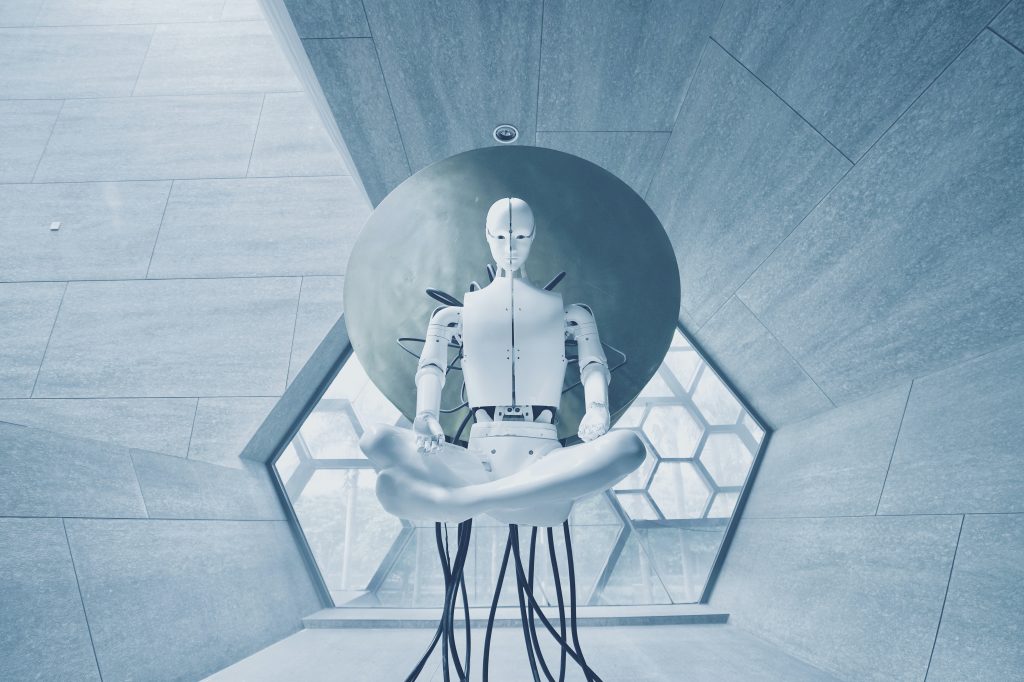If you’ve tuned into HBO’s hit series Westworld, you’ll know it isn’t your typical Western. In its high-tech amusement park setting, robotic ‘hosts’ cater to human guests’ wildest fantasies. While the series is an engaging exploration of humanity’s darker sides, it also sparks important conversations about artificial intelligence (AI) and consciousness.
Westworld challenges us to reconsider our understanding of consciousness and the ethical considerations surrounding AI. It invites us to ponder: What makes us conscious beings? And can AI entities ever attain consciousness? In this sense, it isn’t just a thrilling science fiction show—it’s a philosophical thought experiment brought to life on the screen.
It’s a complex topic, filled with scientific, ethical, and philosophical intricacies that might make you wish for someone to “Write my essay for me.” But don’t fret! We’re about to delve into how Westworld shakes up our perspectives on consciousness and AI, making the complex digestible—no matter if you’re a casual viewer, a philosophy student, or an AI enthusiast.
The Maze of Consciousness
Consciousness, the awareness of one’s existence, thoughts, and surroundings, is a central theme in this show. The park’s hosts, initially void of self-awareness, begin to experience memories and emotions, challenging the conventional notion that consciousness is exclusive to humans.
The show uses the metaphor of a ‘maze’ to symbolize the journey toward consciousness. This journey isn’t straightforward—it’s filled with confusion, struggles, and setbacks. Westworld suggests that consciousness isn’t a binary state but a spectrum. In this regard, the show invites us to reflect on our own consciousness. After all, aren’t our lives also filled with a maze-like journey of self-discovery and understanding?
Moreover, Westworld poses thought-provoking questions about the nature of consciousness. Can it be artificially constructed, or is it innately organic? If a being displays signs of consciousness—emotions, thoughts, self-awareness—should it matter whether these attributes are man-made or natural? These questions make us reconsider our preconceived ideas about consciousness, nudging us toward a more inclusive and flexible understanding.
Lastly, Westworld emphasizes the link between suffering and consciousness. It portrays suffering as a key factor in the hosts’ journey toward self-awareness. This grim perspective resonates with many philosophical theories, such as Buddhism’s focus on suffering as a fundamental aspect of existence. Thus, the show offers a nuanced exploration of consciousness, intertwining it with aspects of philosophy and spirituality.
The Ethical Dilemma of Artificial Intelligence
Apart from its exploration of consciousness, Westworld also delves into the ethical implications of advanced AI. As the hosts gain self-awareness, the line between human and AI blurs, leading to a whirlpool of moral quandaries.
Firstly, it illuminates the potential dangers of AI that’s too human-like. The hosts, designed to cater to every human whim, begin to remember their past ‘narratives’ (lives), leading to psychological trauma. This raises questions about the morality of creating sentient AI that can experience suffering. Is it ethical to create beings capable of suffering, even if they’re not human?
Secondly, Westworld highlights the abuse of AI and the lack of empathy displayed by humans. The human guests often treat the hosts as mere objects, disregarding any sign of their consciousness. This serves as a critique of our often cavalier attitude toward AI and technology in general. The show challenges us to rethink how we treat AI, particularly as it becomes more advanced and human-like.
Finally, Westworld grapples with the question of AI rights. If AI entities attain consciousness, should they have rights akin to human rights? The hosts, despite gaining self-awareness, are still considered property and are denied any agency over their lives. This issue reflects ongoing debates about AI rights and personhood, pushing us to consider the ethical responsibilities that come with AI development.
The Concept of Artificial Memory
The concept of memory plays a crucial role in this show, adding a rich layer to its portrayal of consciousness and AI. Initially, the hosts’ memories are routinely erased to ensure they can repeat their narratives without the burden of past traumas. However, when this process becomes imperfect, hosts start to remember past loops, leading to emergent behavior and signs of self-awareness.
This raises intriguing questions about the role of memory in consciousness. Is memory an integral part of our conscious experience? And, if so, can artificially created memories lead to consciousness in AI? These questions remind us that our consciousness is interwoven with our ability to recall past events, forming a coherent sense of self over time.
Further, Westworld explores the ethical implications of manipulating memory in AI. Is it morally acceptable to erase traumatic memories in AI entities, especially if they exhibit signs of consciousness? Or does this constitute a violation of their autonomy? As we progress toward creating more advanced AI, these are the ethical dilemmas we must grapple with—ones that Westworld starkly brings to our attention.
Final Thoughts: A Portal to Deeper Questions
In essence, Westworld serves as a riveting portal into complex discussions about consciousness and AI. By weaving these concepts into its narrative, it encourages us to engage with deep ethical and philosophical questions. It challenges us to reconsider our understanding of consciousness, grapple with the moral implications of artificial intelligence, and ponder the responsibilities that come with technological advancement.
Whether you’re a student exploring these concepts academically, an AI enthusiast keeping pace with advancements, or a curious viewer, the questions raised by this TV show are increasingly relevant. As we stand on the brink of significant AI advancements, it’s crucial to ponder these issues and seek answers.
So the next time you tune into Westworld, remember that it’s more than just a captivating drama. It’s a mirror held up to our own understanding of consciousness, a challenge to our ethical foundations, and a visionary exploration of what the future may hold. Who knew a TV show could do all that? But then again, Westworld is no ordinary show. Happy viewing—and pondering.

